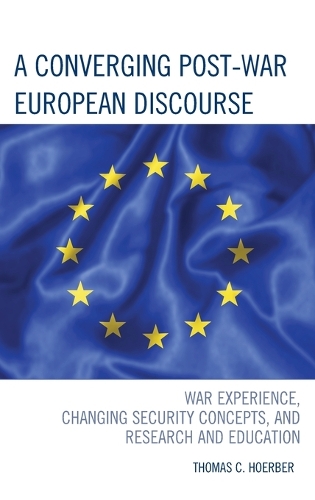
A Converging Post-War European Discourse: War Experience, Changing Security Concepts, and Research and Education
(Hardback)
Publishing Details
A Converging Post-War European Discourse: War Experience, Changing Security Concepts, and Research and Education
By (Author) Thomas C. Hoerber
Bloomsbury Publishing PLC
Lexington Books
24th December 2014
United States
Classifications
Professional and Scholarly
Non Fiction
Comparative politics
Political economy
Central / national / federal government policies
327.4
Physical Properties
Hardback
476
Width 162mm, Height 232mm, Spine 36mm
794g
Description
This book explores the most important components and contributing factors to the European integration process during the 1950s. It seeks to combine comparative politics and political history to examine core themes such as war experience, national security, military security, economic security, societal security, and research and education in three major European countries, i.e. France, Germany, and Britain. It analyses the references to the ensuing European integration process in national parliamentary debates, analyzing which national needs were thought European integration could cater to, but also which national positions were seen as being compromised by a closer European commitment. The development of a national position on European integration and in turn the evolution of European concepts are considered by using discourse theory on parliamentary debates in France, Germany, and Britain. Parliamentary discourses are shown to be an ideal source for analyzing grand themes, such as European integration, because they cover all fundamental ideas; they have to be public and open-ended deliberations which in turn determined the position of each country towards European integration. The great variety of positions reflected in the parliamentary discourse, in particular those which did not prevail and which did not find their way into the commonly accepted historical storyline of European integration, provide a greater comprehensiveness and a better understanding of the history of the European integration process.
Reviews
The process of European integration was far from harmonious, and entaled a complex adjustment between mutual misunderstandings and contested assumptions. By his subtle analysis of speeches, Thomas Hoerber offers new insights into the attitudes of France, Germany, and Britain at a crucial stage of European integration, when success could not be predictedand the nature of any integration remained unclear. At a time when the meanings of European integration are once more contested, not least in Britain, Hoerber offers a nuanced account of the historical roots of national attitudes. -- Martin Daunton, University of Cambridge
This book provides an impressive analysis of post-war thinking about the pros and cons of European integration in Britain, France, and Germany. It shows how convergence among these countries emerged in spite of highly diverging perceptions of the past and visions for the future. A must read in times of crisis and ongoing controversies about the EU. -- Ingeborg Tmmel, Universitt Osnabrck
A work of great merit, Hoerber's book draws together sources and literature from three distinct national backgrounds into a piece of truly European comparative historiography. -- Stefan Seidendorf, Franco-German Institute
Author Bio
Thomas Hoerber is professor at the Centre of European Integration, LUNAM University, ESSCA School of Management.
